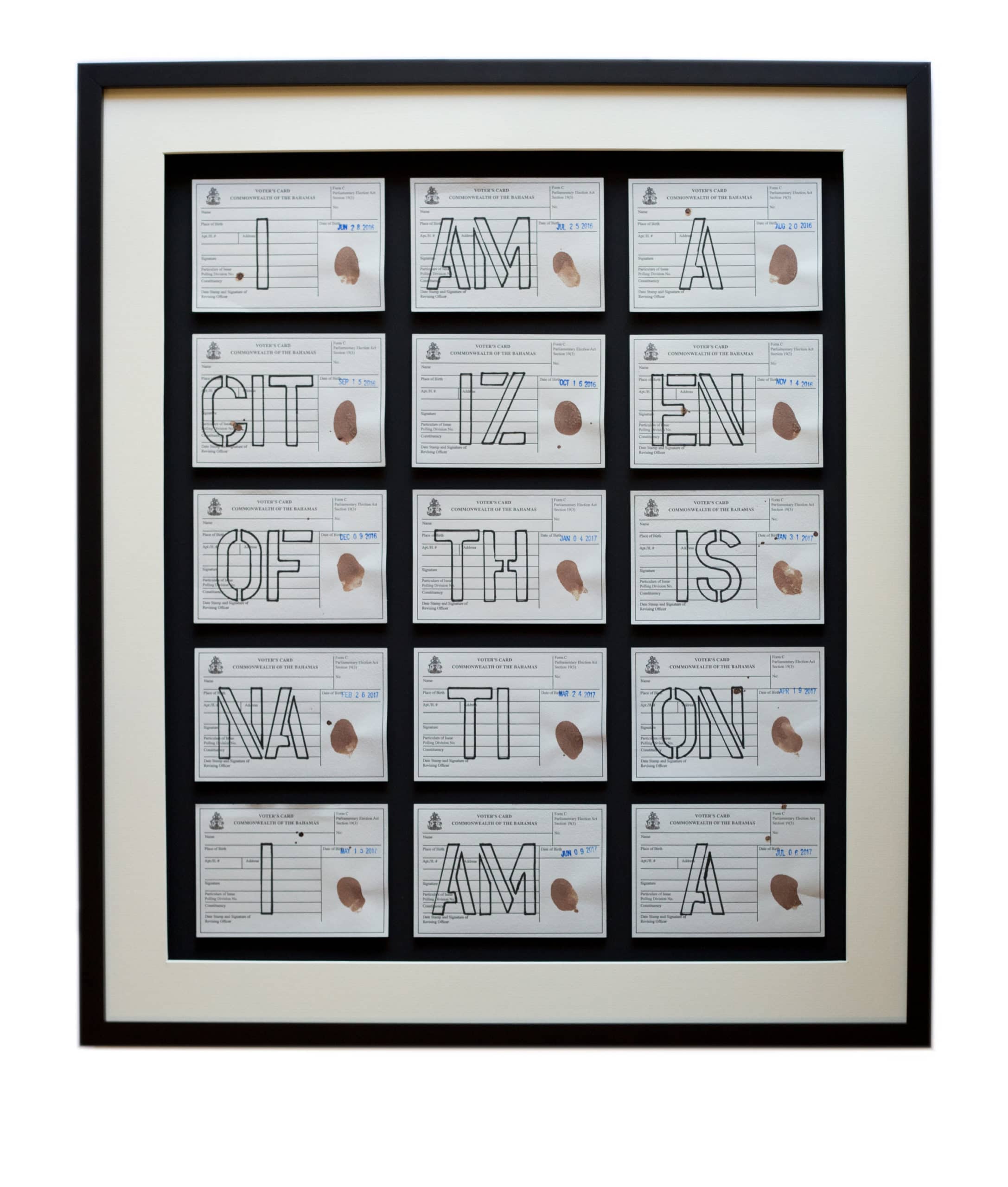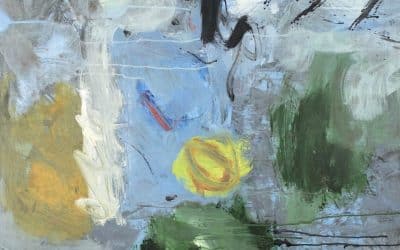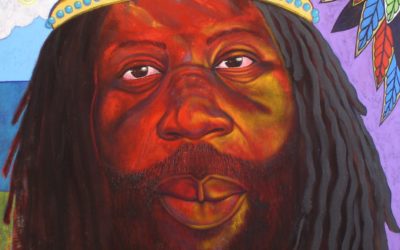
By Natalie Willis
“I still think it’s important for people to have a sharp, ongoing critique of marriage in patriarchal society — because once you marry within a society that remains patriarchal, no matter how alternative you want to be within your unit, there is still a culture outside you that will impose many, many values on you whether you want them to or not.”
― Bell Hooks
How does a referendum asking for men and women to be able to both gain rights in passing on citizenship, visibly backed by the government, still manage to fail? And what do we do in the aftermath? Sonia Farmer’s “Cycle of Abuse” (2017) is a paper work, but it is also time based, and the language employed is more than an exclamation, it is social commentary. She declares her status as a Bahamian citizen via text, and as a cisgendered woman she declares her womanhood through the monthly marking of blood upon these ballots. The blood represents not just her femininity and the rights denied her as a Bahamian woman, but also as a symbol of the various ways that violence is continued against women in this country.
The political moment of 2016 brought up a proverbial rainbow of issues, as colourful and varied as they are problematic, in our postcolonial Bahamas. This vestigial appendix of the colonial era is fitting to burst, and it’s high time something be done about it – though apparently not via referendum. The failed citizenship referendums of 2002, 2012, and 2016 have shown us how our politics is rarely to do with just that, and how can it be? Race, sex, gender, class, belief and orientation all found their way into the latest referendum, and exposed the rot we need to heal as a nation. In this way, Farmer’s “Cycle of Abuse” (2017) is seen as a personal form of catharsis as well as protest. Made from the ballot papers of “Elect Ya Tings” (2015) – the mother-work of “Cycle of Abuse” and also presented at the Central Bank Art Competition’s Open Category – Farmer had participants vote for gender equality in regards to citizenship in a voting booth cum pseudo-catholic shrine, only to have the votes shredded upon their entry to the ballot box. An exercise in futility, apparently not unlike the referendums that we have seen come and go. Taking the shredded paper, she pulped it down to produce this series of voters cards – where a portrait of her face should be, replaced with a DNA portrait of her blood. Farmer follows on in the tradition of strong feminist work from the Caribbean, and speaks to Caribbean womanhood and its nuances in a way that is as sensitive as it is biting.
Marriage and citizenship are basic rights, and usually quite straightforward for some places. Born in a particular country? Regardless of parenthood, around 35 nations unconditionally allow citizenship to those born on its soil. From Antigua and Barbuda, to Chad, to Canada. Marriage equality and its history can get a little more tricky. Historically, marriage, had to do with land ownership and the merging of family land in the times of agriculture at its high (see: most of human history), but with the shift from agriculture to industry and the world-wide shift in economy that came from this, things began to shift. Oh, and the church being tied to marriage? That didn’t solidify until the 12th century. All the things we think of with marriage as we know it today did not become the norm until roughly 2-3 centuries ago. The advent of the camera lead to photographs of Queen Victoria’s wedding dress, made in white purely to show off the lace but enjoyed for its connotations with purity – before this point, it was a bit of a free for all. Engagement rings, however date back to the ancient Greeks, and it is also thought that citizenship as a concept in keeping with how we see it today dates to this period as well. Funny how the two become tied.
In the U.S. marital rape was legal in most states until the 1970s. The Bahamas is one of a handful of nations that has yet to offer these rights to women to own their own bodies and their autonomy. With domestic abuse, rape, and gender related violence running so rampant in this country, and with the failure to amend this heinous legal situation, one doesn’t have to think too hard around who it is protecting the perpetuation of these laws. Women here are systematically denied their right to pass on their citizenship to their children if they marry a foreign man – though a Bahamian man doing the same is free and clear to. If women cannot pass on their citizenship when they marry, and if they run the risk of rape not being taken seriously in the court if the rapist is their husband, then what good reason do women have here to marry when they lose such fundamental rights to their freedom and protection? The referendum, and its predecessors, highlight one key fact outside of our misplaced old-colonial ideals. It isn’t about empowering a public to make its own choice, and it is only half about the misogynist, homophobic, and classist debate around the topic – it is “not a human rights issue, but a political tool” as Farmer puts it.
Perhaps it is best to end on Farmer’s words herself: “Cycle of Abuse is a manifestation of this frustration, a response to the results one year later, and a disruption to this dominant, problematic, and outdated narrative. For this piece, I gathered the voting ballot shreds from Elect Ya Tings and pulped them down to make them into blank sheets of paper. I then letterpress- printed blank voting cards onto these sheets. Each of these cards holds a thumbprint of my menstrual blood for every cycle experienced between June 2016 to July 2017, along with the declaration that I am a citizen of this nation. The cycle continues. The resistance continues. I refuse to be told that I am less, or that my children are less in the eyes of the law of my birthplace. Equal rights for all; we are all citizens of this nation.”
Farmer’s work from the 2017 Central Bank Art Competition is currently on display at the National Art Gallery of The Bahamas as part of the current Permanent Exhibition, “Hard Mouth: From the Tongue of the Ocean”. For those artists needing a little inspiration in their final push towards the deadline for this year’s competition on September 19th, take a look at the “Biggity” gallery and see how other artists of this nation find their voice.

